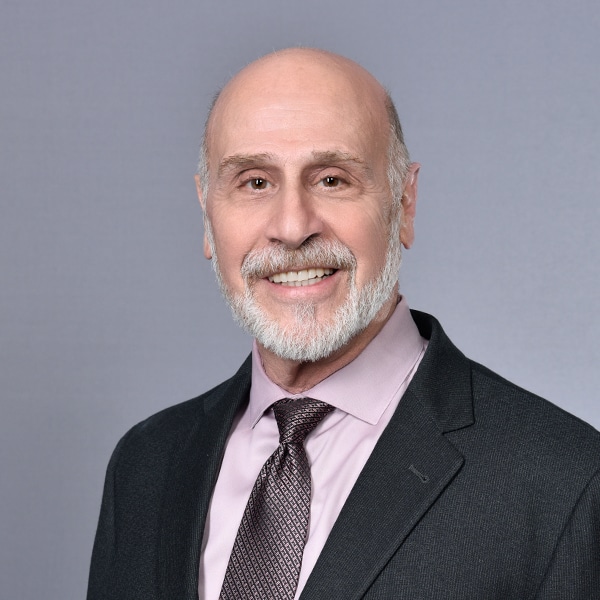Read the complete article “Charged with Transformation” below or download the PDF →
As healthcare systems across America continue to pursue aggressive transformational strategies, some are coming to the realization that a higher level of execution and new organizational skills are necessary. To succeed, these strategies demand meticulous orchestration of a litany of complex, intertwined, cross-functional, change-inducing initiatives.
While many organizations continue to attempt this transformation through traditional implementation models and methods, some innovative systems are transforming their execution capabilities too.
One of these systems is NorthShore University HealthSystem. In late 2017, it developed a bold three-year vision and plan to continue its world-class care while continuing to drive growth and impact, converting a full-service hospital into Illinois’ first dedicated orthopaedic and spine hospital, implementing an advanced and innovative clinical care model across the system, and implementing more than a dozen other initiatives of similar scope and scale. While execution was one of the organization’s historical strengths, the executive team recognized that the degree of complexity and cross-functional nature of these transformational strategies would require a heightened level of execution skill and coordination. The pace and scale necessary would also require more-empowered teams. So part of NorthShore’s transformational strategy included a dedicated Transformation Management Office (TMO) to facilitate consistent strategy execution. Its objective: to drive and coordinate implementation of the transformational portfolio while embedding critical new skills and supporting enhanced ownership and accountability throughout the organization.

A New Execution Model
Partnering with Integrated Project Management Company (IPM), NorthShore established a new execution model led by the TMO to refine and prioritize the strategic portfolio, lead execution of the most strategically critical initiatives, and help embed and disseminate new implementation capabilities throughout the organization.
IPM put its Strategic Realization Model (SRM) to work to guide and structure NorthShore’s efforts. The SRM is a framework for developing an organization’s strategy execution capability to set the goals that drive the strategy, align the initiatives to the strategic direction, and prioritize and implement the portfolio of initiatives. Its main goal, as NorthShore desired, is to continually drive strategic direction, alignment, and execution, and support the organization by embedding capabilities to sustain the effort and continuously improve.
The SRM has several key elements, including clear goals, prioritizing work based on goal contribution, monitoring and adjusting the portfolio of initiatives, and applying skilled and disciplined project leadership. The catalyst for implementation of this model is a Strategy Realization Office, which at NorthShore has been dubbed the Transformation Management Office or TMO. Including “transformation” in the name of the group was important at NorthShore. It helped provide a clear connection to its role in advancing the most important, strategic, and transformative initiatives across the organization.
NorthShore’s TMO Delivers Focus [Download the PDF] →

What the TMO Is, and What it Isn’t
NorthShore’s TMO is a component of the business model that partners with organizational leaders to develop and manage the portfolio of transformational initiatives, execute the most strategically critical initiatives, and guide progress on the strategy. It was critical to clarify what the TMO’s role is and does—and what it is not and does not do.
What the TMO Does
- Defines the project and portfolio management process and tools
- Develops and evaluates potential initiatives
- Facilitates formation of the portfolio of initiatives required to deliver the strategic goals
- Determines resource requirements
- Leads execution of strategically critical initiatives
- Drives continuous improvement and learning, and a continual evolution of new implementation, problem-solving, and other skills into the organization
- Serves as a permanent and key part of the organizational structure and reports at an executive level
What the TMO Does Not Do
- Define the organization’s strategy
- Lead all or even all “big” initiatives
- Lead continuous improvement or “day job” initiatives
- Support individual department objectives
- Operate independently; it is a partnership with operational and business leaders

Establishing the TMO: Building Trust While Building Skills
Enabling highly qualified full-time staff to devote their time to the TMO required an investment and the trust of the organization. Therefore it was critical that the executive team recognized and actively supported the need for the TMO.
Selection of the TMO members was critical. NorthShore partnered with IPM to outline the skills and competencies required. IPM resources served as the TMO Lead for its first year and as one of the initial TMO Consultants, and internal candidates were interviewed and selected to comprise the bulk of the Consultants. The TMO sought members who had not only deep experience and diverse capabilities, but also garnered respect and established relationships across the organization. There was also an intentional effort to recruit people with diverse perspectives, skill sets, and expertise, considering both their functional or clinical experience as well as their ability to lead teams, engage stakeholders, or improve processes.
With the team built, the TMO began to earn trust and pave the road to sustainability. As they began to work on their selected transformational initiatives, TMO members had to show their value as partners and supporters, or they may be seen as someone imposed on a team. In addition, the TMO worked to present a unique perspective, as well as to provide skills and tools that helped leaders look at execution in new and different ways.
It helped immensely that the TMO had broad organizational leadership support. They were willing to give the team the opportunity to do their best, take chances, experiment, fail, learn, and evolve. Small successes led to earned trust with more stakeholders, and within the first year, the TMO gained a reputation throughout the organization for getting things done.
Another success factor came in how the TMO has grown. Members continue to be added based on both their exceptional skills and their ability to expand and complement the knowledge of the TMO team.

Growing Within the Organization
Three years later, the TMO has tripled in size and receives frequent requests for their support. TMO-led projects are critically important transformative efforts, and receive the resources, organizational support, and accelerated leadership decisions they need. So it has become increasingly rigorous about selecting and prioritizing the projects for the portfolio.
Besides careful selection of the initiatives, another key to the TMO’s success has been to identify the capabilities and skills necessary to transform NorthShore and help develop them throughout the organization. Through their work with a variety of leaders and teams, the TMO has helped transfer and develop project management skills and discipline, creative thinking, and other competencies across the system. For instance, early in the TMO’s development, a member designed a template agenda for leading meetings. It was simple, but included necessary information such as clearly articulated goals, topics and speakers, and a way to track next steps. It was quickly adapted as teams saw its benefit and is used throughout the system today.
As the TMO and its influence have grown, so have the skills it is working to embed into the organization. Some of the key skills include fundamental project management capabilities like developing work plans, communications, and leading progress, as well as change management, stakeholder management, process improvement, design thinking, and creative problem solving. The TMO currently is aiming to improve skills in business planning, goal setting, performance management, and others. It is challenging itself and the broader organization to continuously improve. On IPM’s Strategic Realization Model, this is part of “progressive adaptation,” which is developing the organization’s ability to consistently advance its ability to adapt and improve.

TMO Results
To measure the success of the TMO, NorthShore examines several metrics. Primarily, results are tied to achievement of the organizational goals on the corporate balanced scorecard, which include quality, patient engagement, operational excellence, financial sustainability, and growth. The TMO also looks at the number of initiatives its Consultants have taken on, its completion rate, and on-time performance. The group polls its internal customers to ask about the results, planning and communications efforts, and other metrics. One indication of the TMO’s success is that some of its members have moved to other areas of the organization to take on leadership roles. This speaks to the achievement of the TMO to prepare those individuals, and it helps to spread the skills and mindset across the organization.
NorthShore also points to the initiatives that have been realized under the TMO’s leadership, such as the design and launch of the dedicated orthopaedic and spine specialty hospital, which required complex coordination across the system and managing difficult operational change and led to great organizational benefit. The TMO has also advanced NorthShore’s clinical care model, which enables the system to segment patients and provide more personalized and effective care. And the TMO supported integration of new partners into the system, and in the process, it helped develop an adaptable, intentional, and collaborative approach to onboarding new partners that will support future growth.
And most importantly, NorthShore has realized the 2020 goals outlined back in 2017, one of which was to evolve the system’s implementation skills and model.
IPM’s Strategic Realization Model [Download the PDF] →

What’s Next for the TMO
The three-year transformational strategy that led to the TMO’s formation is coming to a close, and NorthShore is working toward the next strategic plan. An unexpected benefit of the TMO and the organizational skills and capabilities it instilled has been the system’s reaction to the pandemic. Leaders at all levels were better prepared to pivot, make decisions, and execute quickly, and then readjust with the crisis’ ebbs and flows. The TMO also help prepare NorthShore for the structure and discipline needed to implement remotely. Seeing an opportunity for continuous improvement, the TMO is examining the COVID response and the lessons learned about leading virtual work to ensure that improved processes are applied and necessary skills are enhanced.
Looking ahead, the TMO is prioritizing the skills and capabilities it wants to improve within its own ranks and embed throughout the organization. Like the number of growth, quality, and patient-experience-enhancing initiatives that will come with NorthShore’s future strategy, the TMO will intentionally focus on those that will have the greatest impact on driving the system’s transformation and competitive advantage.
READ MORE – Change Management in Healthcare: Make Your Initiatives Stick →
Authors:
Kristen Murtos, Chief Administrative & Strategy Officer, NorthShore University HealthSystem
C. Richard Panico, President and CEO, Integrated Project Management Company, Inc.
"*" indicates required fields

